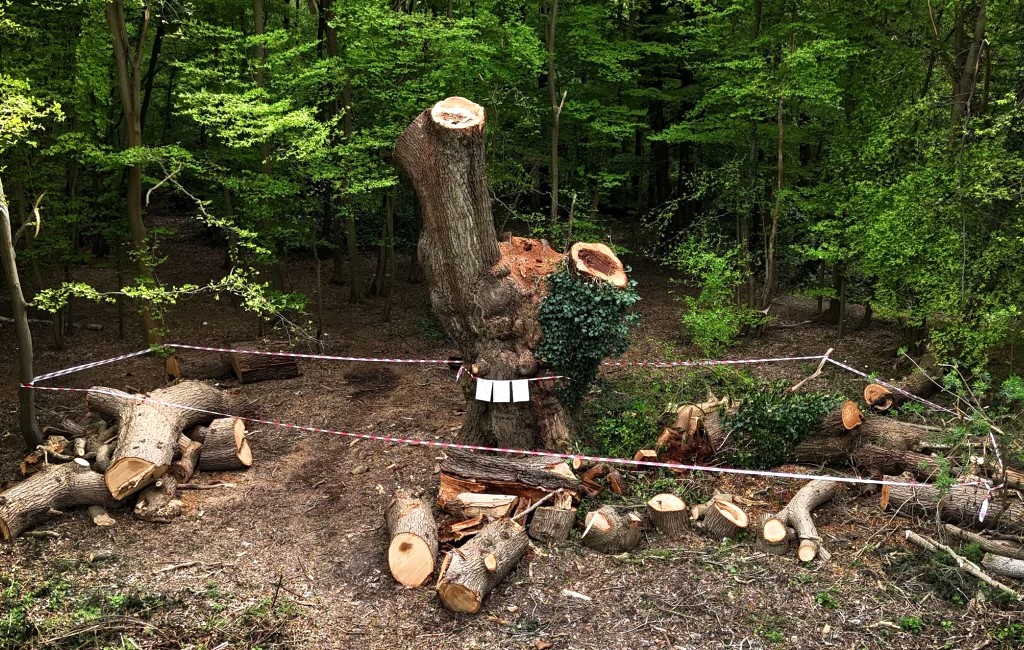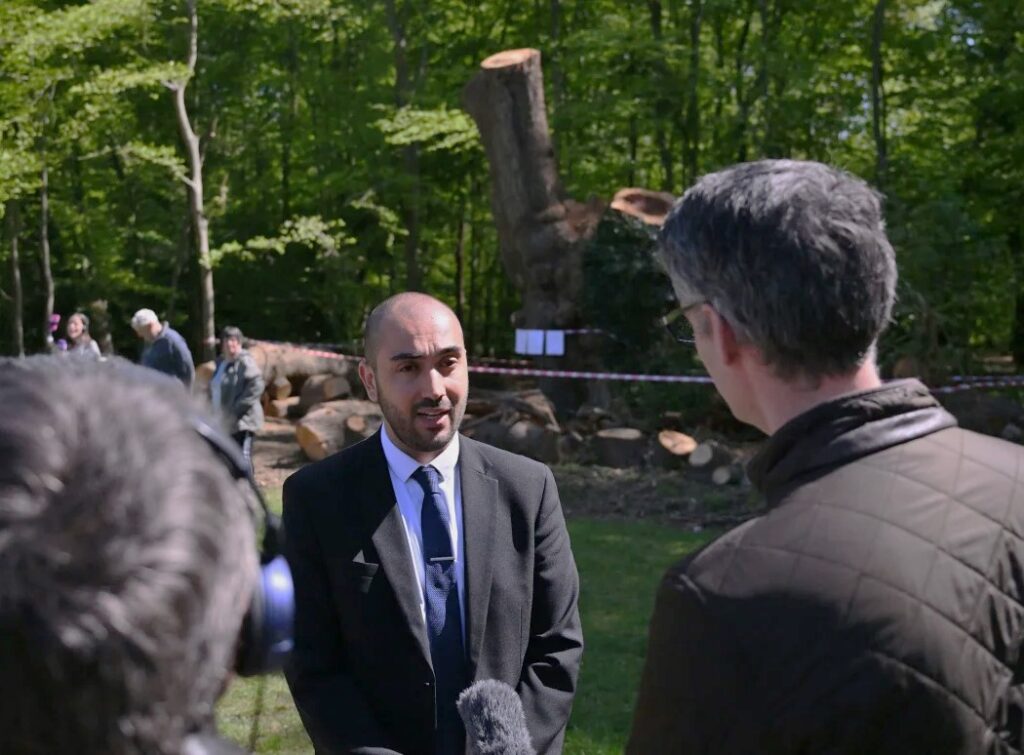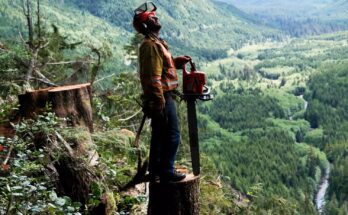
A beloved centuries-old oak tree in London has been felled, sparking public outrage and sorrow — and prompting an apology from the restaurant chain responsible.
The mighty oak, believed to be up to 500 years old, stood proudly outside a Toby Carvery restaurant in Whitewebbs Park, Enfield. Once described by the Woodland Trust as “one of London’s largest and most significant ancient trees,” it was more than just a tree — it was a living piece of history.
Council workers made the grim discovery on April 3: the ancient tree lay in pieces, surrounded by its severed branches. The land is owned by Enfield Council and leased to Toby Carvery, which is operated by Mitchells & Butlers. The company said contractors had advised that the tree posed a “potential health and safety risk.”
But locals and conservationists are devastated. With a girth of 6.1 meters (20 feet), the oak was ranked among the top 100 largest oaks in all of London — a rare and irreplaceable natural landmark.
“I am outraged that the leaseholder has cut down this beautiful ancient oak tree without seeking any permissions or advice from Enfield Council,” said Ergin Erbil, the leader of Enfield Council. “We have evidence that this tree was alive and starting to grow new spring leaves when this action was taken.”
Now, what was once a majestic presence in the park is gone — a stark reminder of how fragile even the strongest roots can be when left unprotected.
Enfield Council has condemned the felling of the ancient oak as a breach of trust — and possibly, a breach of contract.
“The tree was the oldest on the site,” said Council Leader Ergin Erbil. “Cutting it down appears to be a clear violation of the lease, which specifically requires Toby Carvery to maintain and protect the existing landscape.”
He emphasized the profound loss, not just for the environment but for the community: “This tree wasn’t just old — it was a thriving habitat. It supported wildlife, fungi, pollinators. It was a living part of our ecological and cultural heritage.”
The council is now considering legal action.
Adding to the controversy, the council revealed that when the tree was last assessed by experts in December, it was declared “healthy” and “posed no risk” to the adjacent car park or its visitors.
In a final attempt to preserve what little remains, authorities have issued an emergency tree preservation order on the stump — a somber monument to what once stood tall for five centuries.

A spokesperson for Mitchells & Butlers told CNN that cutting down the tree was “a critical step to ensure the safety of our staff, our guests, and the broader public.”
“We carefully followed all legal protocols,” the statement continued.
Phil Urban, CEO of the restaurant chain, later expressed regret over the public reaction. “We deeply apologize for the anger and distress this situation has caused,” he said.
“The removal of a cherished, historic tree is a highly emotional issue—and it’s certainly not a decision we made lightly,” Urban wrote in a letter addressing the controversy. “What’s done cannot be undone,” he acknowledged, adding: “We must now focus on strengthening our internal processes.”
Benny Hawksbee, a local Enfield resident and member of the Guardians of Whitewebbs group, voiced his heartbreak in a statement released by the Woodland Trust. “That tree was part of Enfield’s identity, part of our shared national heritage,” he said. “I’m devastated—and like so many others, I want answers.
Jon Stokes, Director of Trees, Science and Research at the Tree Council, emphasized the remarkable resilience of ancient oaks, noting in a statement from the Woodland Trust that these majestic trees can live for up to 1,000 years.
Despite the recent damage, Council Leader Nesil Caliskan Erbil offered a glimmer of hope. “The oak is still showing clear signs of life,” she said. “We are committed to doing everything in our power to support its recovery and encourage new growth.”
Meanwhile, the Metropolitan Police Service confirmed to CNN on Thursday that they are treating the tree’s felling as a civil matter and have officially closed their investigation.
This isn’t the first time the felling of a tree has ignited public outrage in the UK.
Just last year, a beloved sycamore tree in northern England—famous for its appearance in the 1991 film Robin Hood: Prince of Thieves—was tragically cut down in what authorities described as a deliberate act of vandalism. And in 2021, residents in southern England were left bewildered by a wave of mysterious tree fellings, with dozens of trees inexplicably cut down under the cover of darkness.


